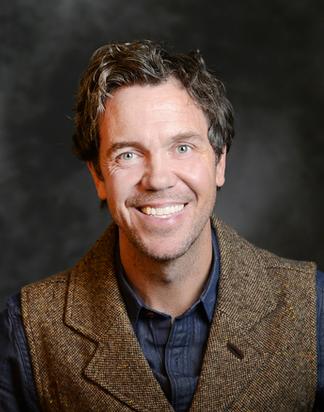Curriculum Vitae
Biography
I am a Qualitative Research methodologist, with extensive experience in ethnography, phenomenology and narrative inqury. I earned his PhD from Indiana University in History, Philosophy and Policy Studies with a focus on anthropology and international comparative education. Additionally I have worked in the field of Outdoor and Environmental Education for over twenty years, across multiple educational settings, both formal and nonformal, and with diverse populations and multigenerational groups. I taught environmental education in pre K-12 schools tailoring lessons to state standards, worked as a park interpretive naturalist, led wilderness experiences for young adults as a wilderness guide, and have worked with non-profit outdoor education organizations. Additionally, I spent several years in Cleveland developing and building learning gardens and outdoor natural areas for elementary schools to foster outdoor experiences for children. I hold certifications as an Interpretive Guide and Interpretive Guide Trainer with the National Association for Interpretation.
I am the program director for the immersive and experiential minor in Outdoor Leadership and Environmental Education. The minor provides a wide range of experiences in outdoor settings including study abroad opportunities and national certifications.
My research concerns place-based education, outdoor experiences and play for children and wilderness experiences for young adults in remote, wilderness settings. I am the project coordinator for the UND Learning Gardens Project, a collaborative effort between the UND and local schools to develop place-based garden education. I continue to work with regional nonprofit organizations dedicated to outdoor education for children and adults and conservation oriented projects.
Please visit In The Field, an open-access platform for learning about field-based qualitative research methods that are experiential, embodied, and interpretive. The purpose of creating this open-access learning space is to share content and support a deeper understanding of qualitative methodology generally, and more specifically, field-based research design and methods. We hope this reflects the relational, collaborative, and participatory nature of field-based research methods.
Qualitative Research Methods
Ethnographic Research Methods
Outdoor Leadership
Environmental Education
Ecological Foundations of Education
Ethnography
Narrative
Place-Based Education
Outdoor, Environmental, and Expeditionary Education
Wilderness Experiences
Natural History Interpretation
Sense of Place
Selected Publications:
de Silva, R., Hunter, J.E. (2021) Unlocking the metaphor in Native and Indigenous Hawaiian storytelling: Puhi in the Tree and other stories. The Qualitative Report, 26(6), 1932-1961.
Hunter, J.E., Syversen, K., Graves, C., & Bodensteiner, A. (2020). Spontaneous teaching: Adult perspectives of educational practice and children’s play in outdoor environments. International Journal of Early Childhood Environmental Education 7(2).
Felege, C., Romsdahl, R., Hunter, J.E., Hunter, C., & Ellis-Felege, S. (2019). Immersive field experiences lead to higher level learning and more translational impact on students. Journal of Environmental Studies and Sciences 9(3), 286-296.
Felege, C., Hunter, C., Hunter, J.E., Felege, S. (2018). Pedagogy and practice in STEM field experiences: Intersections of student and mentor identity and impacts upon student outcomes. Journal of Education for Teaching44(4)DOI: 10.1080/02607476.1450818
Hunter, J.E., Graves, C., & Bodensteiner, A. (2017). Adult Perspectives on Structured vs. Unstructured Play in Early Childhood Environmental Education. International Journal of Early Childhood Environmental Education. 5(1), 89-92.
Hunter, J. E. (2016). Naturalists and meaning making: An ethnographic report from the field. Journal of Interpretation Research, 21(1).
Hunter, J. E. (2015) Intersubjective sensibilities: memory, experience, and meaning in natural history interpretation. The Qualitative Report, 20(7), 1046-1061.
Hunter, J. E. (2014). A walk in the woods: Re-membering a place to teach preservation. Ethnography and Education. 10(2), 154-169.
Hunter, J.E. (2012). Towards a cultural analysis: The need for ethnography in interpretation research. Journal of Interpretation Research. 17(2), 47-58.
Selected Presentations:
Hunter, J.E., Robinson, J., Bladow, J., Schlenker, J. (2021) Collaborative learning gardens: Establishing community connections between UND’s College of Education and Human Development and Valley Middle School (Poster Presentation). Place-Based Symposium, Hosted by Teton Science Schools. Virtual, April 19-23, 2021. (Author and Presenter).
Robinson, J., Hunter, J.E., Gourneau, B., Bonson, A. (2021) Developing Indigenous students’ STEM identities through a phenomenon-based approach: Integrating STREAM curriculum in the elementary classroom. National Association for Research in Science Teaching (NARST). Virtual, April 7-10, 2021. (Author and Presenter).
Felege, Christopher, Hunter, C.A., Hunter, J.E., Felege, Susan. Immersive Field Experiences as Part of the Curriculum. Wildlife Society and American Fisheries Society. Reno, NV. September 29-October 3, 2019.
de Silva, R., & Hunter, J.E. Unlocking the metaphor in Native (K?naka ‘?iwi) and Indigenous (K?naka Maoli) Hawaiian women’s storytelling. Qualitative Research Study (Paper). Roundtable Session, Setting the Record Straight in the Post-Truth Era: The Importance of Indigenous Research and Praxis, American Educational Research Association (AERA), Annual Meeting. Toronto, Ontario. April 5-9, 2019.
Graves, C., Syversen, K., Hunter, J.E. Engagement and risk: A study of one Outdoor classroom and early childhood experiences learning in nature. Ethnographic and Qualitative Research Conference. Las Vegas, NV. February 25-28, 2018.
de Silva, R., Hunter, J.E. How narrative research resounds with Native and Indigenous ways of knowing to de-colonize education. Ethnographic and Qualitative Research Conference. Las Vegas, NV. February 25-28, 2018.
Butz, N. T., & Hunter, J.E. Microhistories, knowledge acquisition, and experience upon the ice: Lessons from polar expeditions for outdoor education. Paper presented at the University of Wisconsin – Stevens Point Annual Teaching Conference, Stevens Point, WI. January 18, 2017.
Hunter, J.E. Interpretation in the Heart of the Wilderness: Ethnographic research and wilderness education on Isle Royale National Park. National Association for Interpretation, International Conference, Los Cabos, Mexico. March 17-23, 2017.
Hunter, J.E. Intersubjective sensibilities: Memory, experience, and meaning in natural history interpretation. American Anthropological Association Annual Meeting, Denver, CO. November 19-22.
Certified Interpretive Guide (CIG), National Association for Interpretation
Certified Interpretive Trainer (CIT), National Association for Interpretation
Ph.D. History, Philosophy, and Policy Studies (2012)
Dept: Education Leadership and Policy Studies, School of Education, Indiana University, Bloomington, IN
Concentration: International and Comparative Education
Minor: Anthropology
Dissertation Title: A Pedagogy of emplacement: Experiential storytelling and sense of place education in park interpretive programs
M.P.A. Environmental Policy and Studies (2001)
School of Public and Environmental Affairs, Indiana University, Bloomington, IN
B.A. History (with Honors) (1994)
Butler University, Indianapolis, IN
